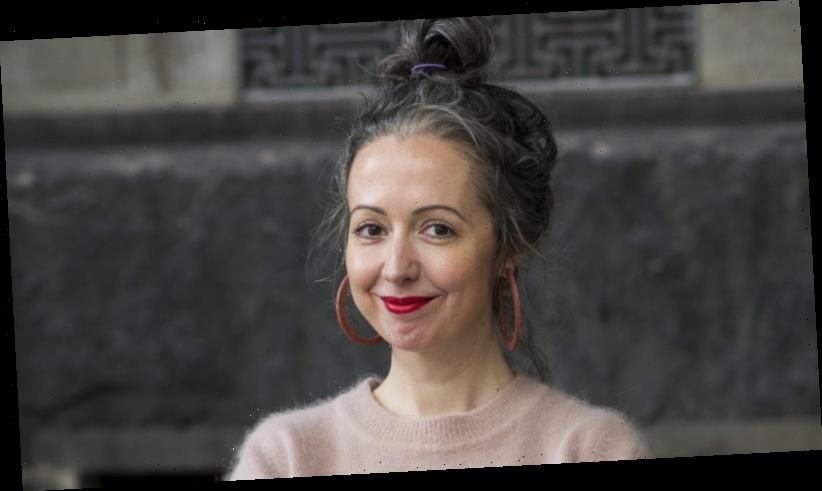In November, writer and artist Marieke Hardy stepped down from her role as Artistic Director of Melbourne Writers Festival to focus on a slate of new projects. This month, her first play, No Pay? No Way! opens at the Sydney Theatre Company.
Hardy says the work, an adaptation of a 1974 satire by Nobel Prize-winning Italian writer Dario Fo, reveals parallels between 1970s Italy and the present day. It also speaks to our connections with each other – and our place in the world.
Writer Marieke Hardy, who calls herself a ‘political junkie’.Credit:Paul Jeffers
“I’m a political junkie, the granddaughter of a communist and think there are so many ways we can get people to consider politics and the world that are not long-form essays, like satire, comedy and farce,” says Hardy. “[Dario Fo] talks about the corruption of banks, politicians, people exploiting workers by raising the cost of things, the fact that the workers who are holding the country together are the least thought about. Women are invisible. [Right now] it is horrific – the bad people are getting worse; the rich are getting richer. It can be harrowing for us to always be in the way of constant news cycles. [Theatre] gives us oxygen, lets us hold hands and occasionally have a laugh together.”
No Pay? No Way! was originally set in 1970s Italy, an era shaped by corrupt leaders, the rise of neo-fascism and crippling working-class poverty. It follows Antonia and Margherita, a pair of women, outraged by the rising prices at the supermarket, who lead a group of housewives on a shoplifting spree. Hardy’s adaptation, directed by Sarah Giles and featuring theatre legend Helen Thomson, brings to the fore the power and complexity of the female characters. It also dials up the feminist elements in the original text.
“The original had a lot of these long, masculine monologues about capitalism and communism, but I really wanted to make these two incredibly powerful, funny women the leads and make the male characters defer to them slightly,” says Hardy, adding that Fo often wrote with his wife, Franca Rame, an actress who influenced the feminist elements in his work. “[In the play], the women try to hide the food by pretending they are pregnant. Unlike men in 2020, men in 1974 think ‘I don’t understand pregnancy and I don’t want to know.’ But at the same time Giovanni and Luigi are awed by their wives, by their power and strength and mystery. When there is nothing to eat, what do you have? You have hope, you have love and you’ve got your community. You’ve really got to cling to those things.”
Hardy, who’s been a full-time writer for 20 years, is best known for her television writing as well as Women of Letters, the wildly popular literary salon she co-curated with Michaela McGuire. But along with the public side of her practice, she has also long created and presented art anonymously. For Hardy, this reflects a fascination with the idea of art as a form of altruism and about putting things that bring people together into the world.
“When I arrived at the STC and I saw all the costumes and sets, I thought ‘gosh this is amazing’ and felt really overwhelmed and grateful and I don’t take any of it for granted,” says Hardy, who has also recently launched a monthly spoken word event in Melbourne with performer Emily Zoey Baker, Better Off Said: Eulogies for the Living and the Dead.
“[But] I’m also interested in what it means for someone to walk into an art space, not know who the creator is and just appreciate the work as the work. It’s about putting something into the world that is kind and connective. The best thing I’ve made, no one will ever know about. I mortgaged my house to make it and I have no regrets.”
No Pay? No Way opens at the Sydney Theatre Company on February 10.
Source: Read Full Article

